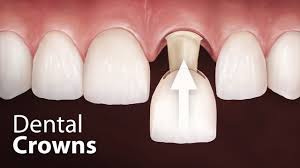The Role of Dentists: Guardians of Oral Health
Dentists are healthcare professionals who specialize in the care, dentistry near me treatment, and maintenance of oral health. Their work is crucial not just for the health of our teeth but for the overall well-being of individuals. A dentist’s expertise extends beyond just treating cavities; they are responsible for preventing, diagnosing, and managing a wide range of conditions affecting the teeth, gums, and mouth.
The Essential Role of a Dentist
Oral health is an integral part of a person’s overall health. Poor oral hygiene can lead to a number of severe conditions, ranging from tooth decay and gum disease to more systemic issues like cardiovascular diseases and diabetes. Dentists play a crucial role in educating patients about the importance of regular oral care, offering preventive treatments, and diagnosing conditions early before they progress into more complex problems.
Preventive Care
Preventive care is the cornerstone of dental health. Dentists emphasize the importance of brushing and flossing regularly, as well as having routine checkups every six months. During these checkups, dentists look for signs of tooth decay, gum disease, and other potential issues, offering professional cleaning to remove plaque and tartar buildup that regular brushing can’t address. Preventive treatments also include fluoride applications and sealants to strengthen the teeth and protect them from decay.
Diagnosis and Treatment
Dentists are trained to diagnose a variety of dental issues. Through visual examinations, X-rays, and patient history, they can detect signs of tooth decay, infections, and more serious conditions such as oral cancer. The treatment options vary depending on the diagnosis. For example, a dentist might treat a cavity with a filling, perform a root canal for an infected tooth, or extract a tooth that is too damaged to save. They may also use dental crowns, bridges, or implants to restore the function and appearance of teeth.
In addition to treating dental issues, dentists often work closely with patients to manage ongoing conditions like bruxism (teeth grinding), misalignment, and temporomandibular joint (TMJ) disorders. They may design and fit dental devices such as nightguards, retainers, and braces to correct these conditions.
Restorative and Cosmetic Dentistry
Restorative dentistry is a branch of dentistry focused on repairing and replacing damaged or missing teeth. Procedures like dental fillings, crowns, bridges, and dentures help restore the function and appearance of the mouth after an injury, decay, or disease. These restorative treatments can make a significant difference in a person’s ability to eat, speak, and smile confidently.
Cosmetic dentistry, on the other hand, focuses on improving the aesthetic appearance of the teeth, gums, and smile. Procedures like teeth whitening, veneers, bonding, and orthodontics are all part of cosmetic dentistry. While many of these treatments enhance a person’s appearance, they also have functional benefits—improving bite alignment, gum health, and overall comfort.
Beyond Teeth: A Holistic Approach to Health
Dentists do not only address oral health in isolation; they recognize the connection between oral health and overall health. Conditions such as gum disease are linked to serious health issues like heart disease, stroke, diabetes, and even respiratory diseases. Dentists are often the first healthcare providers to identify signs of systemic health problems, and they play a role in referring patients to other specialists when necessary.
Moreover, there is growing recognition of the importance of mental health in dentistry. A person’s self-esteem is often connected to their smile, and dental professionals are becoming more attuned to the psychological aspects of dental care. Dentists provide a supportive environment, addressing fears, anxieties, and other emotional barriers that might prevent people from seeking dental care.
The Future of Dentistry
The field of dentistry continues to evolve, with advancements in technology and materials leading to less invasive and more effective treatments. Digital tools, like 3D imaging, allow for more accurate diagnoses and treatment planning, and CAD/CAM systems (computer-aided design/computer-aided manufacturing) enable faster and more precise creation of dental restorations.
Additionally, innovations like laser dentistry, minimally invasive procedures, and improved anesthetics are making dental treatments more comfortable and less stressful for patients. Artificial intelligence and robotic surgery are also being explored, promising more personalized care and quicker recovery times.
Tele-dentistry is another area gaining traction, allowing patients to receive consultations and follow-up care from the comfort of their own homes. This technology is especially beneficial in rural or underserved areas, where access to dental professionals may be limited.
A Collaborative Approach to Healthcare
Dentists work as part of a larger healthcare team. They collaborate with doctors, nutritionists, and other specialists to provide comprehensive care. For example, a dentist might work with a nutritionist to help a patient manage a condition like diabetes by advising on proper dietary habits that promote oral health.
Additionally, dentists play a critical role in educating patients about the link between diet, habits like smoking, and oral health. A well-balanced diet rich in fruits, vegetables, and dairy products, along with proper oral hygiene practices, can go a long way in maintaining good oral health.
Conclusion
Dentists are indispensable professionals in maintaining the health of our teeth and gums. Their expertise spans a wide range of services—from preventive care and restorative treatments to cosmetic improvements and managing oral health as part of overall well-being. As the field of dentistry continues to advance, dentists will remain at the forefront of ensuring that individuals enjoy healthy smiles, good oral health, and the benefits of a connected healthcare approach. Regular visits to the dentist not only improve the condition of one’s teeth but also contribute significantly to overall health, making the dentist an essential ally in the pursuit of a healthy, vibrant life.

